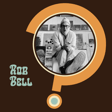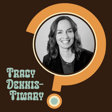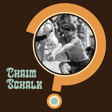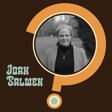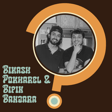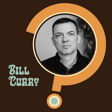Become a Creator today!Start creating today - Share your story with the world!
Start for free
00:00:00
00:00:01

Episode 11 - Ricky Staub
Ricky Staub is a film director and a writer. He founded Neighborhood Film Co, a production company that apprentices the formerly incarcerated. We talked fatherhood, learning to get our identity from things other than our work, and Ricky's journey that led him from managing productions on films with $200 million budgets to moving into a homeless shelter.
Follow Ricky on Instagram: @neighborhoodfilm
Transcript
Introduction to Ricky Staub and Neighborhood Film Co.
00:00:11
Speaker
Hello and welcome to What's Next. I'm Joel Krogeman. Today on the show is my conversation with Ricky Staub. Ricky is a film director, a writer, and he runs Neighborhood Film Co., a production company that employs and mentors the formerly incarcerated.
00:00:27
Speaker
And for those of you who live in the United States, he has a movie that you can watch on Netflix right now called Concrete Cowboy. And I recommend that you do. It's really good. You might even want to watch it before you listen to this conversation. It's a really great movie starring Idris Alba.
Joel's Podcasting Journey and Personal Growth
00:00:47
Speaker
I was really nervous leading up to my conversation with Ricky. I'm nervous for all of these chats but Ricky is someone who I've reached out to in the past and I've asked him for advice about filmmaking and various other things and he's always been more than willing to talk with me and share his wisdom and his perspective on things.
00:01:07
Speaker
But I think just knowing that we were going to have a conversation that was going to be recorded for the purpose of sharing it kind of messed with my head a bit. I don't want to perform. I want the conversations to be natural, but I feel like I kind of have to a little bit. And I do edit these conversations.
00:01:26
Speaker
But honestly, it's mostly I'm just editing myself because as I'm working on these sometimes I find that my words come out so jumbled I can't even tell what question I was trying to ask. So I'm really trying to find the line between real so I can grow versus wanting to make sure these conversations make sense and also wanting to come across a little smarter than I would otherwise normally be.
00:01:52
Speaker
but that's kind of why I'm doing this in the first place this podcast trying to face some of my insecurities and really trying to grow and the way that I speak is a big one because because people have said to me that my voice has a white noise quality to it there's really no way to spin that so it feels so it can feel good
00:02:17
Speaker
But since starting the podcast, I've actually found a few things I sort of like about my voice. So that's good, right? I don't hate listening to it, which I think is a positive growth step. So yeah, I guess doing this podcast is a little like exercising. It hurts a bit and there's a lot of resistance inside of me to do it, but as I get in better and better shape, it feels better and better too.
00:02:45
Speaker
Even though it still hurts, there's a bit of a high that comes with it. All that to say, I'm really glad that I stuck it out because I had a really good talk with Ricky and I've been looking forward to sharing this conversation with you.
Ricky's Family and Relocation Experiences
00:03:01
Speaker
So please enjoy my talk with Ricky Staub.
00:03:11
Speaker
I don't know if you can hear that. No, I can't. Okay, good. How's the mic? Yeah, sounds great. How's it going, man? Good, good. Are you in your office? Yeah, this is my office in Ventura. Okay. Where are you in the world? My wife and I and our family just moved from Chicago to the St. Louis area. Nice. What prompted you to go there?
00:03:40
Speaker
My wife is finishing up her grad program. We moved here for that. It was a really good program that offered a full scholarship. She was at SAIC before and it was exorbitantly expensive. When you're spending the price of a house on education, it makes a lot of things.
00:04:02
Speaker
I feel really far away. Oh, I'm sure. And then recouping that cost later. Exactly, exactly. Well, thanks for doing this. No worries, man. Of course. You're busy these days, huh? Yeah, it's good though. I'm also, you know, I have married, I have two kids, two boys. You do? My life is full, yeah. How old are your two boys? I have two as well. Six and three. Oh, no way. Okay. How about you?
00:04:31
Speaker
nine and five. My oldest just turned nine on Saturday. So it's crazy, young kids. It is. I love it. I mean, it's just like I want to be a great dad. So it means I'm like just want to like be in everything with them and my six year olds playing baseball. So it's like I'm
00:04:52
Speaker
you know, doing that and it's just, it's makes for a very full existence. Yeah. Are you, um, are you coaching or are you spectating at this point? No, I mean, uh, it's a very, like our coach is awesome and she has parents get out there a lot. So I definitely would. I think next year I'll probably like assistant coach. That's cool. I love the, it's fun. I didn't, I mean, I played baseball probably until middle school. So I wouldn't say I'm like, uh,
00:05:17
Speaker
I know what I'm doing, but at that age, I'm like, come on, I know how to hit and catch, so. Yeah, that's the important part. It's really like about the social stuff. My oldest son kind of, he just started soccer too, and it's a lot less about the quality of the sport and much more about growing in some of those emotional social skills. Yeah. Well, I definitely, I feel like baseball has
00:05:45
Speaker
Like as my son said, my six year old, he said, you know, soccer doesn't have any rules because he thinks it's just running around, but a lot more growth opportunity in baseball, just the concept that they can strike out and the pressure. Right. Yeah. It's all on you. Yeah. Yeah. It's good though. I like it. Cool.
Ricky's Career and Mission-Driven Approach
00:06:04
Speaker
All right. Well, um, from the outside, from my experience, following along what I have seen of, of your work and what you've been up to the little bit that we've,
00:06:14
Speaker
interacted in the past. You've been on a pretty cool journey and in a lot of ways you're doing all the things that I would want to do. You're a film director, you're a writer, you're running a production company, you're a dad of two boys as I am.
00:06:29
Speaker
trying to make that a central part of your life and really have your kids know that they matter. Absolutely. And on top of all that as well, you really made a significant effort to be mission driven in what you do, making space for people who might otherwise be forgotten in the work that you're doing, which I think is awesome. But even above all of that, what really stands out to me
00:06:52
Speaker
is this way that you seem to approach your work, which seems to come out of this sense of self that you have, this belief that what you're doing matters and that you have a role to play. And so I'd really love to explore that a bit. Talk a little bit about where that comes from for you and how you view it as you reflect on it for yourself, especially as you think too about what you pass on to your kids and
00:07:18
Speaker
What I thought would be cool is just to kind of go back to the beginning, what was childhood like for you in terms of shaping who you've chosen to become now? Yeah. Well, I was born in the Chicago area, but I moved around a lot. Oh, you were? Yeah, I was. West, well, yeah, I don't know what suburb it was. I moved around a lot. Okay. But ended up landing in the west suburbs.
00:07:43
Speaker
In the middle school, high school time. Okay. But before that, I moved around a lot. My dad was in the hotel business, still is. So we would move quite a bit growing up, up and down the East coast. So I lived in Maryland, outside of Philly, Pittsburgh, Delaware. Cool. Moved quite a bit when I was younger. So he would, did he manage hotels or what did he? Yeah, that's what he does still.
00:08:08
Speaker
So did you spend a lot of time running around? At one point I lived in a hotel. Yeah. Wow. So there's some fun memories there for sure. I bet. You probably saw some crazy stuff. Well, I created crazy stuff. Me and one of my sisters would run around like we own the place. So we made my dad's life terrible.
00:08:31
Speaker
But yeah, we moved around a lot. I don't know how much that played into my upbringing. I'm sure it did at some degree, in terms of being with new people, new places. You know, my parents divorced when I was 10, which then sent us back to Chicago area. And that's where I remained from there. Did you live with your mom or with your dad? Yeah, I lived with my mom. But my parents have maintained a pretty great relationship
00:08:59
Speaker
since the divorce. So that was never really.
00:09:03
Speaker
I don't know, like a division point for me and my siblings. Okay. I have, I have five sisters and a brother. Oh, wow. We're like, we're like a dysfunctional Brady Bunch, but we all love each other. Where are you in the order of, of, I'm right in the middle. Okay. Wow. Wow. That's, yeah. So I have a, I have a brother that's 11 years older and a sister that's 10 years older all the way down to a sister that's 15 years younger. Okay. How old are you? How old are you now?
00:09:34
Speaker
I'm 39. 39, okay, so yeah, wow, that is a range, dude. Yeah, it was fun though. I have a really good relationship with my siblings. So there was seven kids living in a hotel at one point? No, no, no, no. It was just because of the age gap, so it was different. Yeah, yeah.
00:09:57
Speaker
where everyone was living at the time, always, always in the same house together at the same time. Yeah. Yeah. Yeah. That would have been too much. That would have been chaos. No doubt. Okay. That's cool. So you, how long were you in Chicago for then?
00:10:14
Speaker
Oh man, what's the math there? I don't know. I moved there in shoot. What a test here. I don't want to say fifth grade till I threw high school. Okay. So eight years, something like that. Eight or nine years, probably.
00:10:31
Speaker
Did you, um, out of high school, you went to
Ricky's Educational Background and Writing Partnership
00:10:35
Speaker
college or? Yeah. So then out of high school, I went to school in California, went to this small liberal arts school called Azusa Pacific out near and Pasadena. And then basically stayed in California after that. Oh, you did. I think I went home once. Yeah. Okay. Over the summer. And then after that, I never looked back. I love it out here.
00:10:55
Speaker
Well, the only time I ever came back East was then when I started my company, I started it in Philadelphia of all places. Yeah. Okay. And so what, what brought you to, is there's a Pacific specifically that's cool. Were you, were you already interested in filmmaking at that point?
00:11:11
Speaker
No, I didn't even study film there. I, uh, I was purely interested in it because a good friend of mine was going to visit for his spring for our spring break, my senior year of high school. Okay. So I decided to go to, I just wanted to go to California and literally while I was there or just before, I don't remember.
00:11:31
Speaker
details are hazy, I applied to go. I was like, this is incredible. And then I got in. The sunshine, man. I mean, it was a very, yeah, it wasn't like a scholarly thought out plan. Okay. California, essentially. Great. So how did film become an interest for you? Yeah, so late in high school, I actually, you know, I've always, I'd say I'd always have an interest in film.
00:12:00
Speaker
I legitimately wrote my first script when I was 10 years old, like a full out script. I remember it was a computer my dad got from his hotel that I don't even know how it actually worked, but I remember it was black and yellow, like a DOS type program. And I had an aunt or I have an aunt that was in the industry and she would send me scripts. So I would mock what they looked like. And I remember I wrote a script.
00:12:26
Speaker
Wow. But then it was like a fading interest as a child. And then as I got into middle school, high school, I just played sports, which is a kid. I actually got hurt my sophomore, junior year of high school playing football. Um, and I couldn't play that season. It was my older sister.
00:12:44
Speaker
who randomly called me and was like, I know you've always had an interest in film and arts. And there was this acting class down in the city in Chicago. She's like, I think you should do it. I'll pay for it. And so I said, yes. I was like, sure. Wow. That's pretty, pretty amazing. Yeah. I mean, I looked up to my sister a lot. I still do. So her advice, anything is gold in my mind.
00:13:12
Speaker
Yeah. Um, and it gave me excuse. I'd take the train into the city and I did this acting class. I'd never didn't know anything about it, but then I really liked it. Yeah.
00:13:22
Speaker
Um, my high school that I went to had a pretty extensive, robust theater program. So I basically started audition for a musical. I actually got a part. I was like, okay, this is cool. I did that still played sports. And then out into college, I decided to study theater. I wanted to pursue that, but pretty quickly I realized I liked it. Um, but it was writing that I really fell in love with. So I started writing in college.
00:13:50
Speaker
actually with a buddy of mine who's now my business partner and writing partner at the time. After my freshman year of college, me and this buddy, his name's Dan. We're living in
00:14:03
Speaker
Living at the beach, we thought it'd be fun to write a script because that's what people do in LA. I mean, it was like, we're going to drink beer and write stories about our upbringing. The best. And about halfway through it, we were like, this is amazing. Like, I want to do this as a living. Oh, really? Wow.
00:14:22
Speaker
Literally thought we were going to win an Oscar. We were so ambitious. Matt and Ben. Yeah, exactly. We were Matt and Ben. So we write this script, like totally redirect pretty much all my ambitions toward I want to be a writer. Same with Dan. He was an English major. You know, I was a theater major. I still did some theater stuff, but it was really the writing that I loved. And I started meeting with film students because I'm like, OK, who can make the things that I write? So I started writing short films.
00:14:53
Speaker
Um, with the students and friends of mine. And then it was near the end of college. I realized that I didn't like the idea of writing something and then having to wait for someone to make it. So I was like, okay, well, what if I'll learn how to produce. So I just started volunteering to work on any film set anyone would let me on.
00:15:11
Speaker
connected to your college or connected to? Yeah, I mean, literally, yeah, professors, friends, I knew, I mean, I've like any grunt job, you could get me on a set. I said, yes, I don't care if I got paid. So I did that. And then at this point, the acting part of me is gone. I did it very, very briefly. I just didn't really love it. But you finished the theater program?
00:15:40
Speaker
Yeah, I mean at that point it was just too expensive to change. Yeah. But you were focused on acting in the theater program? Yeah. Okay, okay. But outside of the, and I will say fast forwarding as a director, I would say those acting classes I think are probably some of the most beneficial experiences I've had as a director. I always tell
00:16:08
Speaker
anyone that wants to become a director, go take acting classes because it will completely change how you view the experience from the other side and give you a new language on how to speak to actors to actually get the performance that you want. That's cool. So that, I'm very grateful for that experience. And I had some wonderful professors, you know, one that I still stay in touch with. I think that was just part of what was great about that school is the level of investment they put in their students.
00:16:37
Speaker
Yeah. Yeah. So yeah, I graduate and then I'm just a PA production assistant on pretty much whatever anyone will let me be on. And then I eventually I landed a job working for this producer named Sam Mercer, right? Who at that point had done
00:16:56
Speaker
you know, M. Night Shyamalan's first six or seven films. He had worked with Sam Mendes, just huge directors. Yeah. I ended up working for him for four or five years and he's the one that actually took me to Philadelphia. I worked on this movie, The Last
Starting Neighborhood Film Co. and Community Focus
00:17:10
Speaker
Airbender. Okay. Where I moved and lived in Philly for two and a half years on one movie. Wow. This is my like early mid 20s. But that was pretty much a masterclass in,
00:17:24
Speaker
how to make films. By the time I finished working for Sam, I was coordinating second units on Airbender and, you know, an aerial unit in Thailand and New Zealand. And I was fully like learning how to produce at the highest level. Yeah. A lot of credit to him for giving me the skill sets I have now and even the confidence to run a production company because I saw how he how he did it. Yeah. Kind of doing the highest level there is doing that.
00:17:53
Speaker
So even then I wasn't directing, it wasn't until I started my production company, which I still have a neighborhood film company. That was in 2011.
00:18:06
Speaker
Were you and Dan writing scripts together this whole time? Yeah, so this whole time, Dan and I are writing scripts that literally no one reads. Were you trying to? Oh yeah, yeah, we would submit it to the Nickel Fellowship and festivals and had very, very minimal, moderate success. But it was essentially an addiction. I can't describe it any other way. It didn't matter to us
00:18:34
Speaker
there was the script itself was a piece of poetry and a painting that we inherently enjoyed by ourselves and felt like this is a completed piece of art for us even.
00:18:49
Speaker
Maybe our girlfriends now wives read them and friends, you know, but by any stretch, it was mostly just something that we never stopped believing we had the capacity to do at a professional level. But we enjoyed it, you know, and still do.
00:19:07
Speaker
But the whole time, even when we were separated, even before zoom was a thing, we had actually get on Skype every, um, Saturday morning and write all day together over Skype. And during the week we would write, do our own writing that we would share with each other. I mean, it was our life revolved around it in every capacity. How, how did that work? Like you, you would kind of work during the week on different sections and then you'd talk those sections out on Skype or how did that dynamic work between the two of you? Yeah. So.
00:19:36
Speaker
essentially still work exactly the same. We come up with an idea together, we plot out the whole movie, every beat of it, every scene of it methodically to the point where it's literally in a spreadsheet. And then at that time, and it's not totally that much different now, at that time we would
00:19:59
Speaker
say, okay, let's, we're each going to write the, let's say we're just starting out. We'll each write the first three scenes. And so we would go that whole week. We would spend independently writing our own versions of the first three scenes of the script. And then on Saturday we would meld them together. So we would start the morning out. It was like Christmas to me. I'd wake up to read what Dan wrote. Um, this is how nerdy,
00:20:25
Speaker
we are that like receiving new writing from Dan to me was a Christmas gift. That's awesome. And it's just so exciting to see how did he interpret what we were going to put together. And you guys respected, had this like mutual respect of each other's craft and point of view. Yes.
00:20:44
Speaker
I only think it works because, and I hope Dan would say the same, that I think that Dan is a better writer. So if he's written something, my immediate, my going into it is it's probably the right direction. So if I feel averse to it or I don't feel like it's right, I can trust that gut because I'm not trying to jockey for my writing, so to speak, to be the winner. It really is truly what makes this,
00:21:12
Speaker
script the best because ultimately we both get credit for it in the end anyway. And I feel like it's been a superpower of ours because you essentially get to I mean Dan and I could and have written our own stuff coming together and just taking the best pieces and sometimes it's like a full blending sometimes it's like dude you nailed this this we're totally gonna build off yours or sometimes it's even
00:21:37
Speaker
Mine could be total trash, but there's like one or two lines that are just bangers that are like, oh man, if we use that part in yours, it would be great. So you're just getting the best of the best. So then we spend the day basically, and sometimes we both, they're both trash and we're like, okay, we got the bad stuff out. What did we learn here that it needs to be wide in these work? And then the second layer that once we started making our writing is we started going,
00:22:08
Speaker
Am I excited to wake up to film this scene? Yeah, sure. And if there was part of it or any part of the scene that felt boring or not exciting to film, I was like, it's probably going to be boring to watch if I don't want to get excited to film it. So why, what's missing here? Interesting. Why is this not propelling the story forward hard enough? Yeah. Yeah.
00:22:31
Speaker
Writing requires some of the most discipline. Obviously, you had an intense passion for it, but I feel like there's a certain sense of inherent value or belief in what you're doing that it feels exciting. It feels like it matters. It feels important.
00:22:50
Speaker
There's a sense of fulfillment that comes from it. Is that something that you felt was new for you in your life or did you get that through sports? Did you get that kind of through other things and this sort of just became the new way that you found who you were and the things that you did? I would say it was unique to writing and it wasn't the only outlet that I used writing. I think that's why it became a natural even before that when I was
00:23:21
Speaker
My junior senior year, I started journaling and I literally have not stopped since I have over 20. It's like a timeline of my life. Yeah. Just like every morning you journal or what is your. Yeah, there'd be gaps in there, but it was just a way for me to express specifically there. It's.
00:23:42
Speaker
It's a dialogue, a prayer with God for me, a faith that I have. And it was a way for me to process through a lot of what was happening in my life, both good and bad. And writing, and that was all handwriting in journals. And I feel like writing in the script format to me is another way to express the way in perspective that I digest the world.
00:24:10
Speaker
Um, through these characters and circumstances, even though if it's any type of fictionalized world or story, I'm constantly taking how I'm experiencing the world and pouring it into that language that I have as an outlet.
00:24:26
Speaker
Yeah. Do you still have that script you wrote when you were 10? I don't. My dad claims that it's somewhere and I really hope that he finds it because I would be so curious to read it. I'm sure it's terrible. It'd be interesting to see if some of what you're talking about now is in that, like how you were processing the world and what you were seeing around you. Yeah.
00:24:48
Speaker
Because even as a 10-year-old, my son's nine, he loves art and he's getting into writing his own stories and stuff like that. But it's for a 10-year-old to write a feature-length script is pretty monumental. There's a degree of focus and determination and drive that is, I think, pretty rare for a kid of that age. Yeah, it's definitely now that I look back,
00:25:18
Speaker
Writing was. It almost feels now that I have two boys, I could, you know, I see what they're diving into. I'm like, is this a pattern that you're going to keep to your 30s? You know, I, I, my mom actually just found a collection of short stories I wrote and illustrated as a 10 year old that, you know, 25 pages long, like.
00:25:40
Speaker
And I was reading some of them to my wife and my boys and my wife was like, I don't even know if I could write this well now. I mean, they're like pretty like well-formed and completely fictional stories about like fictional worlds and what God knows what. Yeah. And others just like retellings of my first time hunting. And clearly that was a mode of a way that I expressed myself.
00:26:05
Speaker
What I think is so cool about that too is it's just pure. It's not this ego-driven thing. It's so much more of a pure just for the love of doing it.
00:26:20
Speaker
Before Dan and I got paid to write, we just loved the craft. It was just, you know, having a completed finished script that we adored and appreciated and I could read and I could see the film. To me, that was, it was everything. I didn't need other people's approval. I loved that we made that and then we would immediately start on a new one. And so everything from the journey to the finishing,
00:26:47
Speaker
You know, I think we retained that purity, um, that I had when I was a little kid. Yeah. Yeah. So you were working for Sam Mercer. You moved to Philadelphia for a couple, two and a half years. And then, then what happened? So then, yeah, then yeah, I had some pretty big, I would say like personal.
00:27:12
Speaker
Revelations, faith experiences personally that drove me to ask questions, you know, like, why am I alive? What am I doing here at a very early age? Yeah. In a lot of ways I feel it was a gift. You know, what is the purpose of my time? You know, I had achieved
00:27:33
Speaker
I wasn't a working writer, but I was working on, you know, a hundred, $200 million movie. Yeah. It's the highest level with a boss that, you know, super demanding, but obviously putting a lot of faith and trust in me. And I was on the path to success and pretty much living a dream I had forever. And yet I was finding myself not satisfied as I looked at, you know, as this part of my life, my faith and God grew. I started to ask questions of like,
00:28:03
Speaker
why are they seemingly in two different buckets? And not to make this like a faith discussion in its entirety, but it's impossible to talk about the changes I made in my life without trying to articulate whether you think it's bananas or not. It doesn't matter. This is what I believed, is that my life seemingly didn't look or feel
00:28:27
Speaker
feel any different than anyone else who didn't have a faith. And I realized that I didn't really, I didn't, I said I believed in certain things that I actually didn't believe because I didn't live out of those things that I claimed. And so it was the first time in my life in Philly where I essentially started to be like, okay, if, if I think I believe there's a God,
00:28:49
Speaker
What does that God say about how I should be living? Not just what happens when I die. And it was the first time where I really took a look at the Bible as not an artifact or a glossed over historical text. I was like, if this was actually God leaving words for us on how to live, what would that actually mean for me? And I realized reading that book that the way churches exist was quite contrary
00:29:18
Speaker
to how people in the Bible actually lived. It was like there was a narrative happening of what people say Christ was like, and then there was a narrative of who Christ actually said he was like. And it was very clear to me that Jesus came actually for the poor, for those who were disenfranchised from our society, those that we were breaking as a human race. And I was like, okay, even radically saying like,
00:29:42
Speaker
God is amongst those people. And so I started to go, okay, well, if God is real, I want to participate in that. Yeah. Or I want to just make clear that he's not real and just go about my life like I'm already doing. Yeah, sure.
00:29:57
Speaker
And it was an investigation of that of in this time where I was living in Philadelphia, I was out of my normal friend group away from college. Everything was changing in my life. And so I started spending time with people who were living on the streets and fast forward to a lot of those people are formally incarcerated. I got really invested in them as friends. I mean, to the point where, you know, I was living in a house in the city.
00:30:24
Speaker
people that I was becoming friends with that were homeless. I was letting them stay in my home and like, I was just like truly becoming a part of my community. But yeah, like radically changed the trajectory of my life. Yeah, sure. Um, essentially I wanted, I had this vision and I'll call it a vision. Cause I remember I was just laying in my bed.
00:30:44
Speaker
in Philadelphia and I had this concept of essentially everything I had in my life. I didn't, I didn't never made a resume. I never applied for a job. I got out of college or during college, I started working on sets. Everyone would just recommend me. I even got the job with Sam Mercer because of two people independently recommending me to him within the meeting.
00:31:04
Speaker
I didn't even have a resume. He's like, all right, I want you to start Monday. And it just completely changed my life. And here it was. I didn't study this. I didn't fill out an application. Yeah. You kind of recognize the privilege that you had gotten. Yeah. Yeah.
00:31:19
Speaker
The concept that came to me is what if I could take someone who was formerly incarcerated, who didn't go to high school, who didn't have anything to put on a resume or an application, but what if I could train them in the skills that I had and make them so hireable that they would just get the job purely based on their skill set. Interesting. And nothing like that existed in way of like an actual company. I became pretty quickly disenfranchised by
00:31:47
Speaker
nonprofits that seem to promise a lot to these friends of mine like resume building classes and things of the sort. But and I talk about this a lot. I was like I was always bothered because I had a pretty confident view of myself and I just just be like there's no way you're taking a job from me. And I'm not some genius out there in the workforce.
00:32:06
Speaker
I'm just an educated, motivated, hard worker who doesn't have a prison sentence. Yeah. You mean like if the option for an employer is you versus them, you'll win every time kind of thing? Every time. Yeah. There's no way you're taking the job from me. Right. And that came out of a place of love where I was frustrated at the use of my time trying to pretend like them going to an interview skills class or a resume building workshop or a computer, any certificate you can get means anything. Yeah.
00:32:36
Speaker
So I was like, I wanted to create a company which essentially put them, in my mind, it was a competitive company that just made incredible work that they were a part of because that's, you know, when people found out that I worked for Sam Mercer, they're constantly trying to hire me. Yeah, sure. And so I wanted to create an atmosphere where I trained someone in the way that Sam trained me. He said to me when he hired me, your job is to be as good as me at my job so I can give you 40% of my workload.
00:33:03
Speaker
Right. So I trained in the same capacity or my vision was for this anyway. So yeah, but that's essentially, yeah. So I quit working for Sam to start neighborhood film company with a mission to
00:33:17
Speaker
higher adults returning home from incarceration. Okay, so just to go back, did you grow up in a faith environment, or when did that become? Because Azusa Pacific, isn't that a Christian college? It is a Christian college, yeah. The short answer is no. Some of my family has variations of faith. Okay.
00:33:42
Speaker
It's a mixed bag. I started going and I guess being welcomed into like a church community in high school through a group of friends that I'm still close with.
00:33:54
Speaker
None of that. It was essentially like I have nothing about me changed. I just felt guilty for certain things I used to do and continued to do. Like it's pretty much all that changed. Okay. And it wasn't until after college when I was in Philly and I would tell people I was working with that I was a Christian, but I'm like, why do I tell people this? Like I don't. Yeah.
00:34:15
Speaker
Like there's so much in my life that doesn't actually do anything with this so-called faith, you know, and so. So that was just a cognitive dissonance that existed in you until you had these experiences where you were forced to make a choice. You couldn't live in that dissonance anymore. No, it seemed worthless to me. Yeah. And I'll say that to people now that claim to have a faith but don't live out of it. I'm like, why even bother? Yeah. Why put yourself through the headache of, especially nowadays, like,
00:34:43
Speaker
I know, it's a little crazy now. Telling someone you're a Christian is a loaded concept because their view of what that even means. Like, I can't even really use that term anymore. It's been so hijacked by absurd, radical people. I don't think that faith is meant to be learned in a knowledge sense. It is meant to be experienced.
00:35:04
Speaker
And unless you engage something to be experienced, you don't actually learn anything. And so when I watch a man I claim to believe in, Jesus say, do as I've done and I don't do those things, you're learning nothing. You have cursory knowledge. It's like me having knowledge of an astronaut means I've never, but I've never been to space.
00:35:29
Speaker
You know? And so I'm watching someone say, you can experience these things and do them even more than me and we choose not to do it. And I was going, oh, screw that. If God is real, I want to know it. I want to experience it. And that's all I can say is that like ever since that time in Philly, my inner being has completely transformed. Like I was never...
00:35:50
Speaker
Sometimes people look at me as like I'm some sacrificial, altruistic person and it's not true. I have the worst thoughts about everyone, about the world, about myself. The more that I understand the insatiable desire God has to love people,
00:36:09
Speaker
The larger the gap is in my own love that I see. It's incredible. Um, but it's intoxicating to be around people who are so vastly different than me and to, to be loved by them in a certain way, to be ministered to in that way. I think, um, it's really hard to articulate. Yeah. It's all the things that love is too. It's frustrating, you know, it's not this Kumbaya experience, you know? Yeah.
00:36:34
Speaker
Entangling my life with people who are formerly incarcerated comes with a lot of heartache, and a lot of frustration and pain, but so does being married, and so does having children. Yeah, it's the nitty gritty of relationships. Yeah, it's relationship. That's what changed, you know? Yeah. So do you sort of see that period of your life as when everything changed?
00:37:02
Speaker
Oh, totally. It was almost daunting and scary because I knew that I was going to redirect my life off the path I wanted. I felt almost enslaved to this new vision that I feel God gave me. The longer I resisted doing it, the more
00:37:25
Speaker
it haunted me. I was having visions of what the apprenticeship, which we call it now, could look like. And I was actually scared because I knew what it was going to require of me to basically say goodbye to my dream job and what I wanted to do versus what I felt like I was supposed to go do. Yeah. So how did you process that? How did you come to terms with or piece with the decision that you ultimately made?
00:37:52
Speaker
A lot of journaling, a lot of prayer, a lot of seeking wisdom and counsel, whether it was through books or people that I could meet that I felt were living out a certain life that
00:38:06
Speaker
seem to be in that same direction. Yeah. You know, I can think of some sit downs with people that were very influential to me. But it did. It was like this nagging feeling that the longer I, it's like I knew a year before I made the decision what I had to do. It was just coming to terms with and the bravery to actually say yes to it. Yeah. And like almost like a refusal of the call kind of storytelling principle. Yeah, sure. Until I ultimately
00:38:35
Speaker
You know, when I, so I quit my job with Sam, this was in 2011, you know, I'm in my mid 20s saying I'm gonna go start a production company that hires people who are formerly incarcerated. And I've never even made a video, let alone run a company, let alone like studied anything to do with anyone formerly incarcerated. But all I had was in Philly,
00:38:59
Speaker
is where this vision came. I had friends that were willing to support it. And I had this woman, her name is Sister Mary Scullion. She's a nun that runs this nonprofit in Philadelphia called Project Home. It was one of the first people to basically tell me I wasn't crazy. And she had felt the same things I felt. I remember she invited me over to kind of an apartment she lived in, in one of the shelters she ran.
00:39:23
Speaker
Remember we drank a Coors Light together in her living room. Nice. That's awesome. If you can have a Coors Light with a nun, actually she had a glass of red wine. I had a Coors Light. But it came out of her fridge. But it came out of her fridge. That's the most important part. If you can have a beer with a nun, I highly suggest it. But yeah, I laid out the vision and she said, come live in one of our shelters. I'll put you up. Wait.
00:39:49
Speaker
You wanted to move in, you wanted to live in, like, can you talk a little bit more about that part of the vision?
00:39:56
Speaker
Well, part of it is I didn't understand what I was really trying the problem. I was really trying to solve. Okay. And again, I can read books. I can go to class for it, but I feel like experience is the greatest teacher. And so I wanted to know what these people suffered through. And it was part of her mentorship was that you should live in one of my shelters then. And all she said is.
00:40:20
Speaker
If you come and stay here, you can't leave. You got to commit. I don't live in the shelter anymore. Yeah, but you have to commit for a period of time. Yeah, don't come here for a month and then leave on me. So yeah, I quit my job working for Sam. I remember we were in the middle of Snow White and the Huntsman in the movie in LA. It was like out of a movie. I had a cushy at a parking spot on Universal Lot. It's like a dream come true.
00:40:49
Speaker
And I traded that in to drive across the country and move into a homeless shelter, which was terrifying. And well, I suddenly had no job, was starting a company. And yeah, I mean, at that point I was like, I'll probably go work at a coffee shop to make ends meet while I get this off the ground. Thankfully, we got one job really quickly that floated us a month and then another one.
00:41:13
Speaker
So it was just you at first? Me and some friends from college that they were actual filmmakers. I was more of like an idea business guy. Okay, so you sort of ran it and then you brought other people in to help you execute the projects and stuff. To me it was like I saw how studios did. They have an idea, they have a project, and then they find the filmmakers to do it. Yeah. Well, that's what's on your website now, I think you've installed that idea.
00:41:38
Speaker
I didn't realize this in the commercial space how not normal it was to not have a roster of directors or I was getting away with something that wasn't orthodox, I guess, just the way I sold it. If you have an idea or if I have an idea.
00:41:54
Speaker
I'll find the best filmmaker for that idea versus having to manage starving artists that you probably just have to imagine just email me all the time like, where's my job? I never had to do that. So, but at that point I wasn't directing as I am now. When you told Sam you were leaving, what was his response? Oh, it was terrible. I was so sick to my stomach. Uh, he thought,
00:42:24
Speaker
I wish I could remember exactly what he said, but I do remember that he said, you're not quitting. And I was like, no, I am. I'm going to do this. And he's like, what do you need more money? So he offered me like his huge raise. Oh my God. Like, do you need a different title? And I had to really, really explain to him why I was doing this. And I remember him and the other producer were like, are you like joining a cult or something? I'm like, no.
00:42:48
Speaker
Yeah. You know, I was trying to explain like my heart around it. It wasn't like a well wishes in the beginning, but eventually once Sam realized I was serious, I remember very specifically I was driving home one night and he called me and he said, I'm really sad that you're leaving, but I know you're going to be successful.
00:43:03
Speaker
And he, I mean, he came on to produce my first movie years later. Oh, did he really? Yeah, he produced Concrete Cowboys. Oh, wow. How awesome is that? Full circle. You can get to later. But yeah, he never stopped believing in me legitimately. What did that mean to you in that phone call when he called you and gave you that affirmation or that? Well, the time it meant a lot because then as his assistant, we weren't
00:43:29
Speaker
close like we became later after I worked for him, which can often happen. I see that happen with employees or apprentices once they leave. I can have a little different dynamic with them because they don't work for me. He was like, he became a mentor to you more in the years to come.
00:43:45
Speaker
Yeah. When, uh, I would reach out to him periodically and stay in touch. And he was actually pretty instrumental when I went into making my first short film in terms of the cage. Yeah. The cage. Okay. Yeah. Which one we first spoke. Yeah. He was pretty instrumental in just what keeping me laser focused on what the mission of that project should be in order to get me to a place where I could actually use it as a calling card to make a movie. So yeah, he stayed pretty instrumental as a mentor.
00:44:12
Speaker
Yeah. After I left working for him. But there were years there where we didn't talk as I was getting the company up and running. Yeah. So what year was it that you started neighborhood? And then how many years were you kind of churning that out, figuring out what it was, building it before you kind of took that big step to do the cage? So we started the company in spring of 2011. Okay. And then when we shot the cage in the fall of 2016. Okay. So it was five years. Um,
00:44:43
Speaker
And it was in that time that as we were building the company and we're getting tons of great work and...
00:44:50
Speaker
getting recognition and all the great things you want for a commercial production company. You know, Dan and I going back our writing this whole time in it.
Transition to Film and The Cage
00:44:59
Speaker
And at that point I started directing commercials. So I started really loving that. I started getting into photography. So this whole another side of my expression started coming out. Dan and I, this was 2015. We're in the middle of this massive national campaign ad campaign for Xfinity.
00:45:17
Speaker
And I just said, you know, this is amazing. Like it's working, our apprentices are thriving. It's like the vision, it like works. Yeah. But in terms of our own personal ambition, I was like, no one is going to see a 30 second commercial, even if it's a Nike commercial.
00:45:36
Speaker
and go, man, they should make movies. I just don't see the bridge. So you still wanted to get to that point of writing features and having those be made into films. Absolutely. When you left the work with Sam to start this production company neighborhood, you were sort of giving up making feature films. Oh, I absolutely thought I'd never see it again. It made me sick and I bawled my eyes out multiple times.
00:46:06
Speaker
for fitting my childhood dream for essentially a new dream that I felt like the Lord gave me to do this work. And I mean, I was convinced I was gonna live in a homeless shelter like Sister Mary. And really, we were literally cutting spots out of a like, essentially a dorm room in a homeless shelter. And clients then were like, we need to come over and do an edit session. And I'm like,
00:46:32
Speaker
editing a commercial from a bunk bed in a home shelter. This isn't sustainable business. And so eventually we got an office and then, you know, eventually, um, I started to feel weird, like living in a shelter and it was running its course in terms of like, it's probably not a healthy dynamic that I'm here. And I'm like,
00:46:53
Speaker
It just became strange, and even Sister Mary counseled me. She's like, you know, stay in the neighborhood. So like, I actually moved our office just close to one of the other shelters where I would teach a middle school film program for her. So that's just why, where we put our office. Just so, I didn't have a car, so I was just biking everywhere. And then I just found like a cheap, you know, row home. I mean, we were living in like the deep hood, so everything was pretty cheap. It's like, so I was still around that community.
00:47:22
Speaker
Yeah. But things just continue to evolve. But yeah, I, by and large, all the friends and connections I had in the feature world were just a distant memory eventually years in. Wow. So that's, I think that's like something to really giving up that must've been painful. And like you said, you spent nights crying in your eyes though. Oh, extremely painful. Yeah. And so there is a lot of beautiful gratification that it eventually did.
00:47:50
Speaker
miraculously come back again, all those connections and relationships that I had in the feature space, particularly Sam, even going to that moment where I asked him if I could meet up with him for lunch. And I explained to him that whole scenario. I was like, I'm making these commercials, but like, how do I make movies? Like what is, I've been writing these scripts. He knows this.
00:48:12
Speaker
written scripts the whole time I worked for him. You never read any of them but he knew that I would get up. I would get to a Starbucks near Universal. I'd get there at 6am so I could write from 6 to 9 every morning and then I'd work from you know 9 to 10 o'clock at night. And I remember when he found out I was up early because then he'd start calling me at like 6 or 7.
00:48:32
Speaker
I know you're up, you know. Once I got more esteemed working board, I was like, Sam, this is my time, all right? I get in the office, then you can pepper me. He's like, you know, what page are you on? But yeah, I had lunch with him and he started by going demystifying something for me. Cause I think any of us that are commercial filmmakers look at, I called them Vimeo All-Stars. People that just win like every staff pick. And he said, you know, who are your favorite commercial filmmakers?
00:49:01
Speaker
And at this time when he's asking me this question, mind you, he's just finished producing a Steven Spielberg movie and is now running ILM, like a huge visual effect. So he's got, he's got some perspective. Yes. And I said, I named these guys that you would, everyone would know. He's like, I want to make a point here.
00:49:20
Speaker
I've never heard of them and I never will because they're not making films. No one cares that you make commercials. Hate to break it to you. So if you want to be recognized as a feature filmmaker, you need to make a piece of work that shows people what you can do.
00:49:38
Speaker
You said it needs to show off how you work with actors, how you move the camera and that you can tell a story that can't, that is unforgettable. People have to watch that film and have to share it. Yeah. Like that's how it, that's how I find out about you. I'm sure people, everyone's path is different. So I'm just talking about my path and one man who gave me his advice. Yeah. Ultimately changed the direction of my life yet again.
00:50:03
Speaker
Yeah. And so at the time I was actually working on a version of the cage, but it was very lyrical and like three minutes long and essentially like a kid playing basketball with like magical realism, but didn't, wasn't going to say much. Yeah. It wasn't a story. No, I went back to the drawing board and.
00:50:21
Speaker
I wrote, I was like, I'm gonna write a script. Like, I know how to do this. I've been doing this. Yeah, that's what you do. And so, I wrote this script and I wanted to make it with the people in the neighborhood that I lived with and around and there's this guy named Andre Wright who runs this nonprofit, Give and Go, that I'm on the board of and he would tell me these stories of these kids. You know, that's where the cage came from. It was birthed out of beers with a buddy of mine.
00:50:49
Speaker
Again, my experience and my relationships and forming the things I say. And so originally I was like, well, let's make this video. This short film will also be a way to promote your nonprofit, which he actually still uses the cage in that format. He'll show it to kids in the neighborhood and be like, what are the lessons that are cleaned here?
00:51:10
Speaker
That's so cool. And in a lot of ways that story, not in a lot of ways, in every way, it was a discovery, a conversation I was having with the world of, you know, there's a huge faith component, even overtly in it, but it was, the whole thing is a story that I was going through where like, I believe that God is not surprised by how fucked up we are. Yeah. He's not surprised. It's part of
00:51:34
Speaker
his narrative for us is to redeem the darkest pieces of who we are. That's what I wanted the cage to say. I masked it in basketball and vines and all this craziness. That was really what I was trying to say. I put that all into it.
00:51:53
Speaker
Yeah. I remember I, I made, I saw, I have this probably random lunch with Sam in his mind and a year or more later I came back and I said, Hey, I'd really, I want to show you the film I made. He did not know you went and made a film based off his advice. No.
00:52:08
Speaker
Wow. He was like, just send it over. I was like, no, I really want to play it for you. At this point, I was pretty confident. It hadn't even gone. I didn't even put it online yet. You knew it was good. I knew I was sitting on something special. I could feel it. I remember I went to a co-working space. My buddy knew about it. Anyway, I rented a private room. I brought my entire desktop and speakers because I was like, I'm not going to risk some crappy tech.
00:52:35
Speaker
Yeah. And him and his wife came and it was just me and I couldn't believe I convinced him to come do this like private screening of my short film. It was obnoxious. Anyway, I play it for him. I like sick to my stomach the whole time. He was like sitting kind of like behind me. I couldn't even look at him. But when the film was over, I looked back and his wife was just sobbing. So I was like, okay. That's good. At least land it for her. That's good. Yeah.
00:53:01
Speaker
And Sam is a very stoic man and he was just sitting there and he went and he nodded at his head and he's like, you should make a movie. That's what he said. Wow. And I just remember being like, oh my God. And then we talked about it. He said, what movie do you want to make? And I had at that time already known about what was called ghetto cowboy was a novel. And we had shot a commercial with these cowboys and I knew about their story and I'd met one
00:53:30
Speaker
in, we speak every year in front of these judges for recruiting for our company and we met at Cowboy. I said, well, I got this book that I know the rights are available but I want to make a movie about it. Yeah. And I had a whole deck, images, whatever. He's like, tell me about it. So I like actually put it up on the screen and I was showing him images that I had made and photos I had. You were ready. Yeah. I was ready for the moment. He said, well, let me, he said you, the rights are available. I said, yeah.
00:54:00
Speaker
I'll have my lawyer look into it. And literally the next week, they are available. The next month, him and his wife get on the phone with me and the author. We get an option on the book. And I mean, it was just, then at that point, I put the cage online. I ended up getting an agent out of it. So it's online who's still my, well, now he's my manager, but he was my agent then. But yeah, it was, we had the rights of the book, everything locked up. And then Idris Elba saw the cage because of my agent.
00:54:30
Speaker
read the script, we wrote on spec and it just kept going from there. It was like opportunity meeting all that, those years of writing. Yeah. Well, it's so interesting too, because so much of what your opportunity met with the drive for why you want to do it all in the first place. And oh man, I can't even imagine what that must've felt like, that sense of
00:54:54
Speaker
Uh, not pay off. That's not the right word, but because that's not why you did it, but that initial vision, you said yes to that, that you weren't forgotten. Like those, those dreams still mattered. Yeah. You know, that's, uh, not to get like preachy, but it is, I would say.
00:55:12
Speaker
I can only appreciate those moments once in reflection. Like when they're happening, there's so much heartache and striving and uncertainty that you don't realize you're in the moment. Like you don't realize this gift is being given to you because you don't actually know if the movie is going to get made. You don't know if it's going to be finished. You don't, you don't know all these things. Um, but it has only been in the last couple of years that I've reflected, particularly with Dan.
00:55:41
Speaker
who has been on this journey with me for like 20 years. Going, you know what's incredible is like, I certifiably gave up this childhood dream for what I felt and firmly believe was God saying, I have a bigger plan for you. Then you can't even, you don't even have the capacity to imagine, but just trust me. And now as a father, having little boys, I'm like, what more do I ever wanna give them than their dreams?
00:56:10
Speaker
Uh, I mean, I can literally tear up thinking about like my three year old loves trains. Yeah. We gave him a train birthday party and you would think it was the greatest moment in his life. Right. Yes. And if I, this like.
00:56:27
Speaker
you know, whether you believe in sin or not or just like not a good person can give good gifts to my children. I'm like imagine if there's a God that actually just wants to give good gifts to people even though you don't deserve it. That's like to me is like what's so special is that that my journey has been fraught with all kinds of frustration and pain and evilness I've even caused and perpetuated but that like I was still gifted this thing that I've had since I was 10. Yeah. I still get to do it even though I thought I gave it up.
00:56:56
Speaker
to me is a very beautiful reflection that I don't take lightly at all. Yeah, yeah. Do you feel now that, like, where does your sense of satisfaction come from now from your work? Is it just in the doing it every day? Like the fact that you get to do it every day, you show up, you get to do it, or is it results when the film's done and it's released? Where's your focus at as you do the work now? In a lot of ways, it's...
00:57:25
Speaker
almost just as similar as when I didn't get paid because, and maybe there's a gift and I never thought about it, but you know, when I finished Concrete Cowboy, we literally locked everything a week before the pandemic hit. Yeah. So I was sitting then on a finished film. We had screen tested it January, February before the pandemic. It's scoring outrageous, like great score. So, you know, our financiers and producers, everyone's like, dude, you are in for such a great ride. Hmm.
00:57:55
Speaker
This is the best part where everything you worked for is going to be appreciated. And then the pandemic hit and it was shelved. Yeah, damn. And even it premiered at Toronto, but it was all virtual. Very grateful, you know, and that's where Netflix bought it. Yeah. But I didn't get a premiere. I didn't get to like celebrate it with the community I made the film with. It was all taken away from me.
00:58:18
Speaker
And so I can't even say that I did it for that because I never got it. Right. You know, and it could be God knows how long till the next one I get to make even after having made one. Yeah. And so I still find myself enjoying just the satisfaction of because writing is primarily what we do now as far as like
Balancing Family and Career
00:58:37
Speaker
a living. OK. Is enjoying the finished script. I can always, always appreciate that because not all of them are going to going to get made. Yeah. You know, whether it's by me or another filmmaker.
00:58:48
Speaker
And just finding satisfaction in things that aren't those things, you know, like accolades or relationships. It's like more of the relationships in the... Yeah, totally. I mean, the things I appreciate now is that A, I get to write with...
00:59:04
Speaker
My writing partner who I've loved writing with forever and we get to support our families this way. Yeah. Amazing. And work on huge projects with like, I'm still like a little kid, like we're working on a project with a famous person. Yeah. Getting to meet with them. It's just crazy. This is crazy. Like something, you're going to pay me like me. Yeah. Yeah.
00:59:23
Speaker
Um, but I appreciate the lifestyle it gives me, you know, that I am home a lot more now as a writer. Um, when I was making commercials, I was just constantly traveling and now I appreciate that I get to be integrated into my wife.
00:59:38
Speaker
and my son's lives day to day. Being at every baseball practice and every game and every event in their life. My son and I bike to school every day. These precious moments that I don't have to miss. That's actually what I'm now savoring and grateful for. Yeah, and it's interesting too is that if you had not given up the dream, you might not be able to do these things now.
01:00:05
Speaker
I almost guaranteed I probably wouldn't, you know, I worked for a producer who was in the office every night till eight o'clock or nine o'clock with kids. And, and that's a very normal rhythm for, I'll say for a father. A lot of mothers though, in our industry, in the same boat, it's a sacrifice. And so I feel, I'm totally like grateful that
01:00:33
Speaker
That's not a rhythm. When I go to shoot again, it'll be terrible. The rhythm of filmmaking is awful. Yeah, you're going to feel it big time. But you'll know it's a season. It's a season, exactly. Well, I know we're already over time, so. Oh, you're fine. Whatever.
01:00:48
Speaker
Oh, yeah. Yeah, yeah. It's all good. Gavin. No, it's good. I'll take all the time. I'll take all the time. But yeah, I think it's so cool that just to hear about that journey and some of these reflections, because I feel like these questions that you've answered in your story and obviously are still answering in your life, it's a daily response to what you have in front of you. Totally.
01:01:14
Speaker
But I feel like this idea of arriving is something that has plagued me for so long. As soon as I'm there, I'll no longer have this pain. I'll no longer have these problems. That ends up being the drive or the goal. But the more people I talk to, the clearer it is that there is no there. There is no end of the rainbow. It's how we live our lives every day.
01:01:41
Speaker
was where we find fulfillment and purpose. When you have young kids and stuff just starts to get frayed. I used to spend so much time alone processing things and writing and all that time has gone away. Even if I get up at five in the morning to write, inevitably my five-year-old's up at 5.30 and he wants to do something. It's a party, yeah. It's just, I guess, that question of what are you committed to?
01:02:10
Speaker
Yeah, and I think to that point it like fatherhood to me was a hard transition. Yeah. And I share this a lot with my friends and like when my first son was born, I didn't have this immediate like, Oh, I'm so in love. Like I hear people say, I was like, this is crazy. Like this human, like, yeah. Hey, like I just watched him come out of my wife experience. And then it's like, he's a human.
01:02:37
Speaker
To me, it was a falling in love experience, but then it was also like fatherhood the first couple of years from me was really frustrating. I was like, why is this so revealing just the worst parts of who I am? Yes. And I realized that it was in conflict with what I really wanted, which is I wanted that time back. I wanted to daydream again. Yeah. I wanted to have my free time. Yeah. I wanted to have all my hobbies that I had before he was born.
01:03:04
Speaker
I wanted to have the freedom my wife and I had to just pick up and do things and it was like everything was being taken from me. But it was only because I wanted something else. I wasn't able to consciously understand that but then I was like, I know now whenever I'm frustrated with my kids, it's because my thoughts or my wants are somewhere else. When they're with them, I can deal with the whining, the demands because what I'm doing is I'm like, I'm shaping them.
01:03:32
Speaker
and their character and that's what my focus is. So I'm okay to receive all their whining and loudness and desires to be with me. And it actually makes it a really beautiful experience. It's only when like my focus is in contradiction to their goals, you know, it's a very selfless, you have to fully commit. I don't think people accidentally become good fathers.
01:04:02
Speaker
Yeah. You are either intentional or you're not. And I made a commitment probably a couple of years ago where it's like, I'm going to be a great father. I don't know everything about that. So I started reading books, sort of reflecting on it, started meeting with people who I felt like were good fathers. It's like, just like I did with filmmaking, just like I did with anything. I didn't accidentally become a good writer. I woke up every day for 15 years when no one cared. And I wrote.
01:04:31
Speaker
Right, right. I was a writer, even though no one called me a writer. I'm going to make this. This is the season of life I'm in. And it means, I thought at first it was going to mean, and I had anxiety around this, that I was going to have, there are filmmakers out there who don't have children who can meditate all day and draw storyboards and come up with ideas. But I have found and I believe this that, and I also, I believe in the higher power of God, like,
01:05:01
Speaker
Honoring intention intention into like, like I'm like discipling my son, but whether or not you believe in that, I don't think it matters. It matters to me, but I don't think it matters for this discussion. I think that what I found is again, living as in an intentional direction toward my children and my wife gives me more creative gas in the tank. It's interesting how it's linked. Yeah. Having a home where my marriage is growing.
01:05:30
Speaker
and we're in the same direction towards our children and my fatherhood is growing. My boys are falling in love with me as I'm falling in love with them and it makes me more creative. Yeah. Because I think my like soul, my deepest part of me is more at rest. And I think I meet, I don't think, I do meet a lot of people in this industry who are not at rest. Yeah.
01:05:53
Speaker
Cause they're not at rest in their marriage or father and they're not at rest in their careers. Cause it's toxic. It's, it's, it's competitive and it's intense. And I think people put all their hopes and dreams on this. Um, but I was just telling a buddy of mine, I was hanging out the other day and we're just like, kinda, he's known me since I moved here to Ventura, which was like really right as we were before we made the cage. So he's like, we watched all this crazy stuff happen in my career. And I said to him, I said, you know, man, like,
01:06:22
Speaker
If all of my career stuff went away, but I was able to just basically make ends meet, like for some reason I always say working at Trader Joe's, it seems like the greatest place to work. It does. I was like, functionally, I don't know after a while if I would notice a big difference. There'd certainly be a part of me that misses like the projects I get to work on, but I'd probably still write.
01:06:45
Speaker
But functionally my day-to-day where I live is built around my family and my friends and my community and things I pour into as a reflection of my faith. I don't like go to like famous people's houses and like hobnob at events like so few and far between that you know, I think sometimes you can get seduced into
01:07:06
Speaker
Worshipping the wrong things. Yeah, if you're not careful, you know, I do think that there's a certain amount of that that comes from not needing to Validate yourself through all this like your sense of self and worth doesn't come from Your work necessarily or who's giving you approval or yeah
01:07:26
Speaker
It's hard though. It's really hard. I mean, that to me is one of the hardest things that I struggle. And that's ultimately what happens for me. Like you're talking about that contradiction or the tension between like being present with your kids and that goal of just connecting with them and with what they need versus
01:07:45
Speaker
My own agenda, you know for myself the tension always is for me when when because I mean it just last night bedtime was a Just a struggle. I wanted my kids to go to bed so bad so I could go do something else that was important to me and for my own identity, you know and When it when though when I feel like my kids are are saying like right now you can't focus on the thing that you want to get your identity from and
01:08:13
Speaker
You got to, you got to be here and present. Yeah. You know that. Yeah. Like get your identity from me. Yeah. Right. Right. I'm curious to hear what you think about this because inevitably you're going to fuck it up. Oh yeah. In order to get back on track, you have to forgive yourself. Totally. And so how do you get the perspective to like, kind of come back to remembering who you are and you're not your mistakes or your failures? Yeah. I think journaling is definitely a part of that. I have started as of late and more.
01:08:44
Speaker
nightly rhythm before I go to bed. It's called the examine actually, it's E-X-A-M-E-N. It's an old actually Catholic tradition. And it's essentially like, how can I end my day reflecting on things that aren't my phone, who that's telling me to be.
01:09:04
Speaker
or what anxiety the news is telling me to have. And I think giving yourself a lot of grace, forgiving yourself a lot, you know, I think it's a Maya Angelou quote. We have it hanging in our house, I should remember it, but essentially people, she says like people won't remember what you say, but they'll remember how you made them feel. And I'd like to think, and I hope that my wife and my boys particularly won't always remember exactly what I told them, like I'm some magical quote.
01:09:34
Speaker
that they have. Yeah. But they'll, they will remember how their father made them feel. Yeah. You know, and I think what you're talking about, like Russia trying to get bedtime, blah, blah, blah. It's like, um, that's been a hard one in the last six months. I remember my wife convicting me hard because she was like, you know, why are we rushing this? Yeah. Like this is going to be gone. Like what are we in a hurry to get to a TV show, a glass of wine? Yeah. Like our phones. Like why are we trying to rush this time?
01:10:04
Speaker
Um, and it was, I was like, yeah, that's terrible when you think about it. Yeah. But it only comes in reflection. Like she's also becoming a reflective person, you know, how I think that again, irregardless of like a faith component, I think a reflection component is really helpful. Like we don't live, we don't live in a world where reflection and rest is really honored, but it's the only time you can really go like, how am I doing as a father? What things could I do better? Or what could I change?
01:10:33
Speaker
You know, for me, I'm reading tons of books on fatherhood. Like I'm going to implement this thing that this father did and steal it. You know, like I've stolen tons of things from other. I don't need to be the inventor of any of them. Yeah. Speaking of like the fatherhood piece, it's just.
01:10:52
Speaker
Part of me helps me remember not, I struggle a lot not trying to find my identity in this work because it's hard not to. It's like constantly scaling yourself against other filmmakers and I've watched it change. I used to look at Vimeo, see who got the staff picks. I haven't been on Vimeo in three or four years. But now I read Deadline or Variety and I see other filmmakers getting jobs that I tried to get.
01:11:20
Speaker
Now I'm jealous of those people. My identity is, it's like the bar moved and only through reflection that I realized I'm like, I'm actually, it's a moving target who I compare myself to. At one point it was commercial guys. At one point it was Vimeo staff, big people. Now it's people who are getting feature film jobs that I wanted. It's crazy. I'm like, where does it end? And it's only through that reflection when, you know, I think about,
01:11:47
Speaker
A friend of mine told me who's not in the industry, but it was like watching the ascent of my career. And he said, just remember that your kids will never care about the movies you make. Right. They'll think about it and might think it's cool once in a while, but like when you die, who you were as their father is the most important. And I reflect on that. Like I could work at Trader Joe's. Yes. And if I could be a better father working there, what adjustment do I need to make in my current career then? Yeah.
01:12:17
Speaker
the most important and I've learned just as I was sharing before, it's not coming out of sacrifice to my work, especially making that work better. Yeah. It's kind of, I guess you ultimately, you do have to believe that you're going to be taken care of. You have to prioritize what needs to be prioritized and believe that the rest will be taken care of. Yeah. And if you're just creating a healthy home, whether it's with your wife, if you don't have kids or with your kids, like I'm being sent out into the world with a home base.
01:12:46
Speaker
who's caring for me. There's a lot of energy, both creatively and practically, that I feel like comes out of that. Yeah. Yeah. Oh, that's awesome.
Current Projects and Future Plans
01:12:56
Speaker
Well, thank you so much, Ricky, for spending the time with me this morning. Of course, dude. Really enjoyed your perspective and lots to think about for myself. That's good. I don't know. I didn't know. This is like a fatherhood podcast all of a sudden. Yeah.
01:13:15
Speaker
Well, it's all connected, I think. I mean, these issues, they just lay on top of each other, and your perspective definitely brings some clarity for how I answer some of these questions myself. Good, man. Thank you. You're welcome. Hopefully, you're not too late for your next meeting. We actually don't have a... I should have made that. Are you recording the video? Sorry. No, I'm not. I'm not. It's just audio.
01:13:42
Speaker
Try to I got these new lights and I'm trying to up my zoom game. Oh, you have the the ring light. Oh, there's like a ring light. I got sent for some other interview that they let me keep. And then but I got these windows that like the yeah, it's just like there's no window here. So it's just like, right, right. My computer doesn't know what the hell to do with it. Yeah. Well, I have this jank towel that's trying to dip in some of this. Just it's just for the slapback. This room has so much slap in it for some reason, like so much echo. So.
01:14:10
Speaker
This just keeps that from, but there's windows behind me too. Oh yeah, you probably have the same problem. Yeah. You just need a towel. All you need is a towel. Yeah, exactly. All right. Well, thanks a lot, Ricky. I definitely look forward to continue watching what you're up to. I appreciate it, man. Hopefully sometime in the future we can connect again. Of course, yeah. Cool. All right. Thanks, man.
01:14:44
Speaker
You can learn more about what Ricky is up to and about Neighborhood Film Co. and their apprenticeship program working with the formerly incarcerated by going to their website neighborhoodfilmco.com. The link to the website is in the episode description. And also I just want to say it again, please do check out his film Concrete Cowboy on Netflix. It's really a great film and I think you'll really enjoy it.
01:15:10
Speaker
So, okay, thank you for listening. From the bottom of my heart, I'm grateful that you're here. I hope you have a great week and I will see you next week. Thanks.
